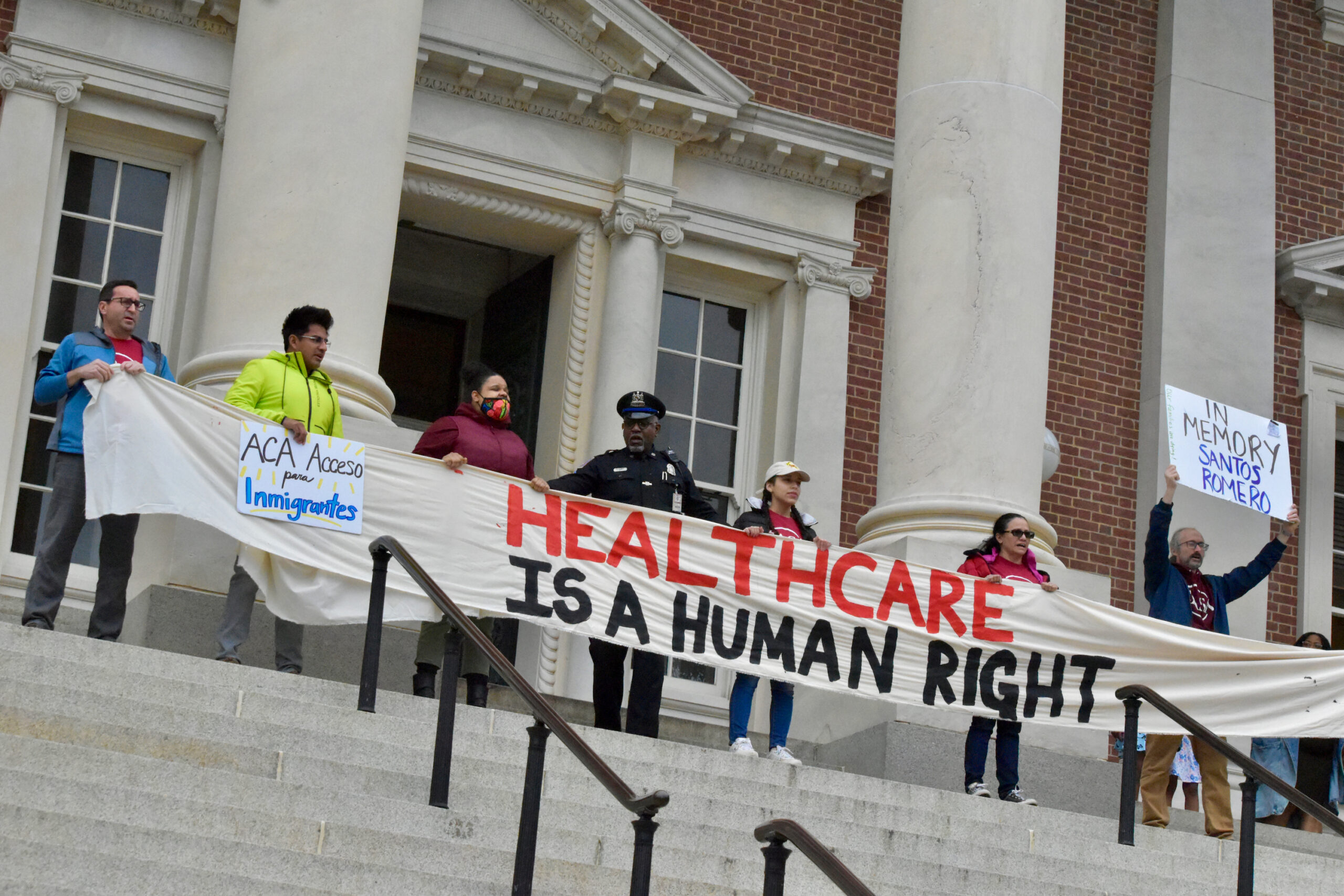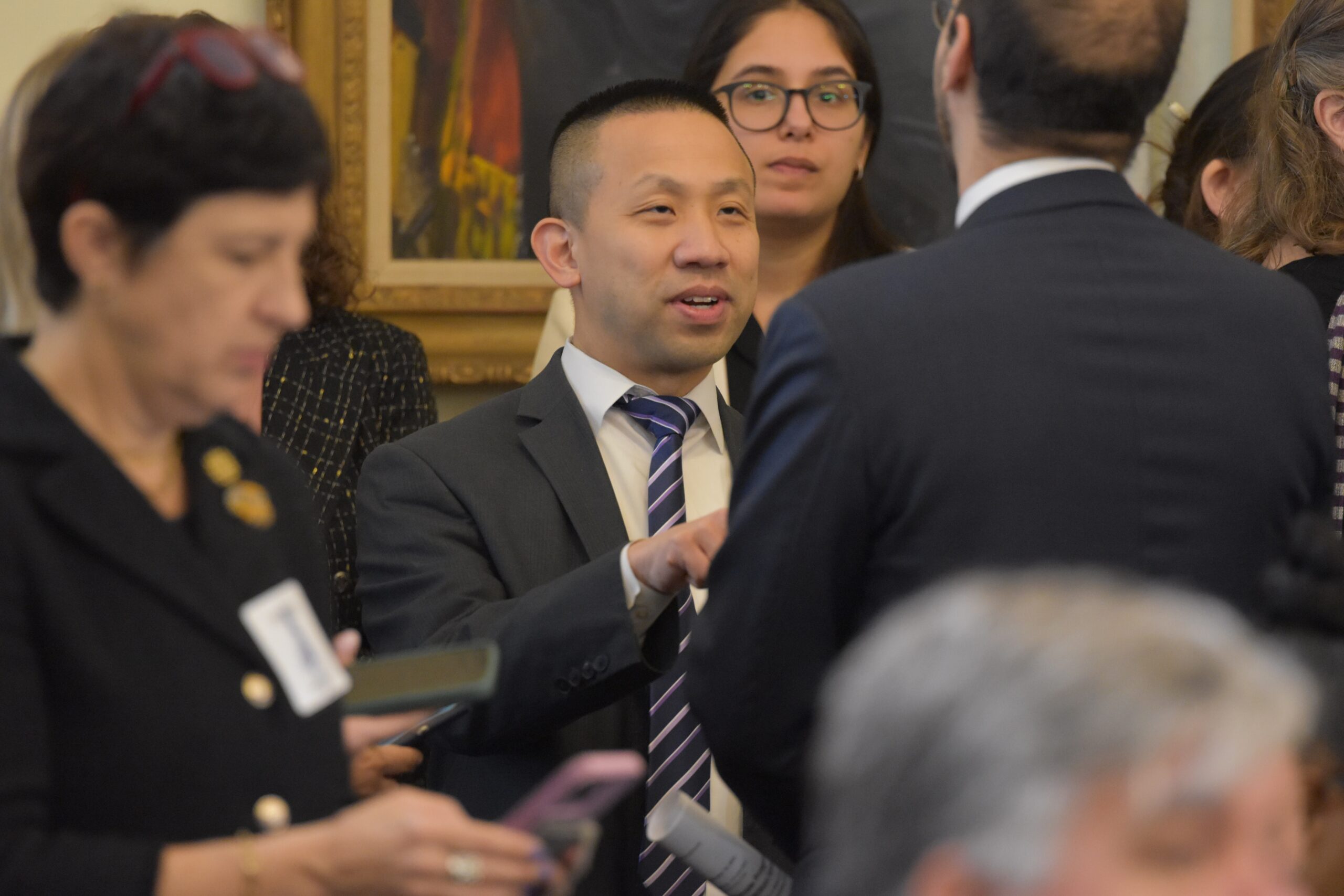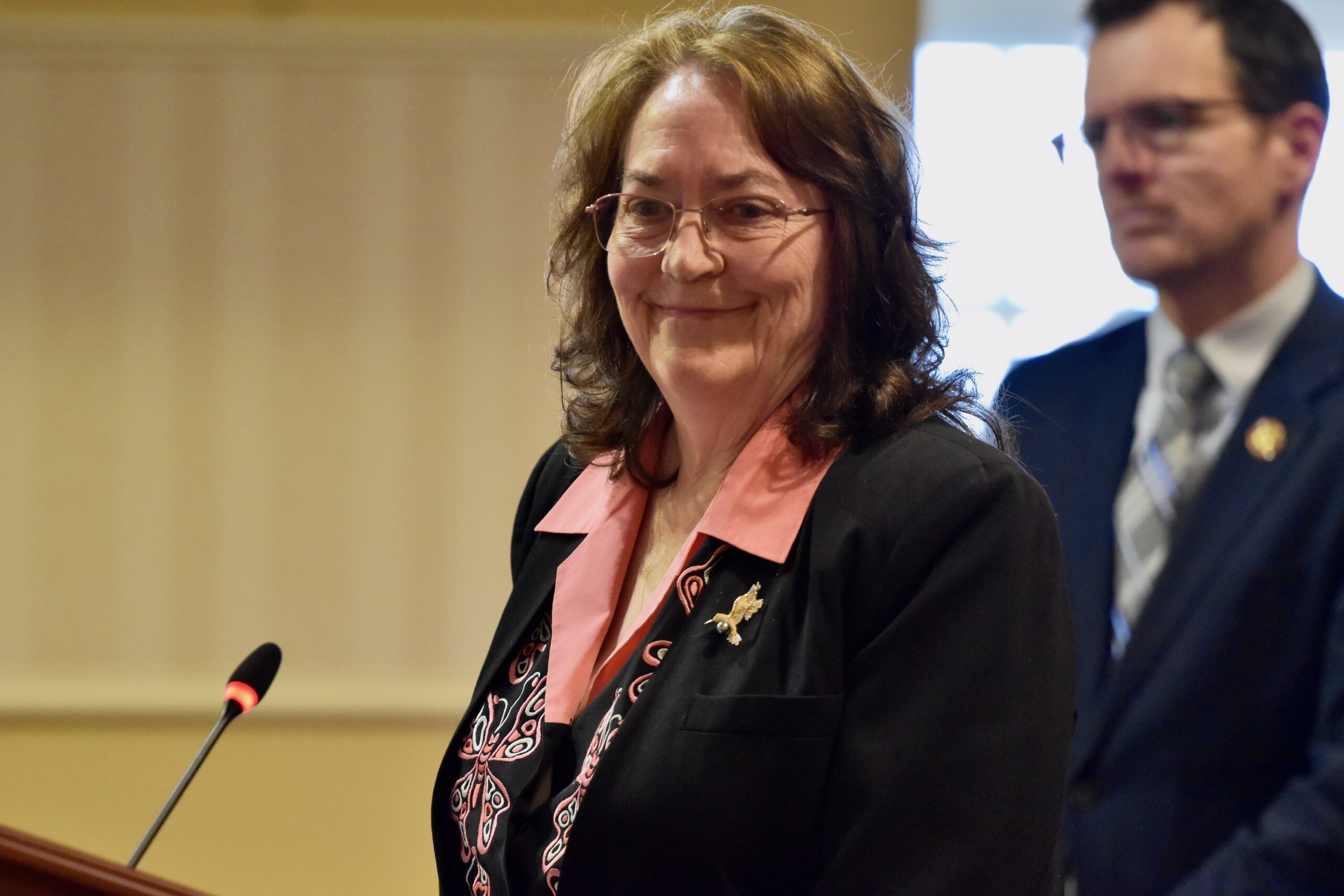Legislation to let undocumented immigrants use Md. health care marketplace to get House vote

The House of Delegates is preparing to vote later this week on a bill that would allow Maryland’s undocumented population to purchase individual health insurance plans from the state’s insurance marketplace.
The so-called Access to Care Act would would prompt the Maryland Health Benefit Exchange, the state’s insurance marketplace created as a result of the national Affordable Care Act, to file a federal waiver to permit undocumented Marylanders to buy and use individual health care plans.
House Bill 728, sponsored by Del. Bonnie Cullison (D-Montgomery), was debated on the House floor Wednesday and received preliminary approval. A final vote is likely by the end of the week.
Currently the Maryland Health Benefit Exchange lets people compare rates of different health plans to find one that is most affordable for their budget, and offers assistance to help Maryland residents navigate their options on the marketplace.
Due to federal restrictions, undocumented immigrants are not currently allowed to use the marketplace to buy insurance, though they could still buy full-priced plans from private insurers.
If HB 728 becomes law, the bill would prompt the Maryland Health Benefit Exchange to apply for a federal waiver in order to let undocumented migrants use the exchange.
The exchange would need to submit a report to the General Assembly six months before the program is implemented, according to the bill. The report would cover the amount and source of funding for the program and the number of undocumented individuals anticipated to be assisted through the program, among other data.
If passed, Maryland’s uninsured and undocumented residents could use the health benefit exchange for private health insurance purchases as soon as January 2026. The fiscal policy note for the legislation says that there will be initial start-up costs for the program, but that the exchange can absorb those costs “using existing budgeted resources.”
On the House floor Tuesday, Republicans attempted to alter the legislation with amendments.
Del. Chris Tomlinson (R-Carroll and Frederick) wanted the bill to require a proof of residency in state statute, to ensure that undocumented migrants from Virginia or other nearby states don’t take advantage of the expanded access to the health benefits exchange.
Cullison said that the amendment was “not necessary,” as enrollment into the Maryland Health Benefit Exchange already requires submitting some forms to prove residency in the state. The amendment failed along party lines, with 100 delegates in opposition and 36 supporting it.
The legislation would prohibit those who are incarcerated from using the marketplace, except in the case of those who are incarcerated while awaiting a final ruling on their case.
Del. Jesse Pippy (R-Frederick) wanted to strike that exception from the bill, to prohibit those who are in jail after being accused of a violent act but who have not received a final disposition on their case from using the exchange to purchase individual health plans for themselves or their families. The amendment failed, with 102 delegates in opposition and 33 in favor.
Starting in Senate committee
Later Wednesday, the Senate version of the bill received its first hearing in the Senate Finance Committee.
“This legislation will simply lift the requirement that people must add documentation of their legal residency status and expand the potential coverage to some of our undocumented residents, who represent some of our most vulnerable populations,” bill co-sponsor Sen. Antonio Hayes (D-Baltimore City) said of SB 705.
His co-sponsor for the bill is Sen. Clarence K. Lam (D-Howard and Anne Arundel), a public health doctor. Both sit on the Senate Finance committee.
The legislation would play into the state’s efforts to lower the current rate of uninsured residents.
“The uninsured rate for the entire population is about 6%. It’s been stubbornly stable,” Ben Steffan, executive director of the Maryland Health Care Commission, told the Finance panel. “Part of the reason is that, that 6% is about 375,000 people. About 75% of those are individuals that do not qualify for the Health Benefit Exchange today because they are non-citizens.”
Insuring some of the undocumented population may also help lower Maryland’s extended emergency room wait times, according to Health Services Cost Review Commission’s executive director, Jonathan Kromm.
“Reducing the number of uninsured reduces uncompensated care, when uninsured are treated in our hospital, which is very important for the state,” Kromm said. Uncompensated care costs are what hospitals incur when they provided care to people without insurance who could not otherwise pay for care.
“More importantly, comprehensive coverage means that people can seek the right care at the right time, rather than relying primarily on hospitals. Covered individuals will have access to preventative and primary care, and better management of cronic conditions, which is key to overall improvements in population,” Kromm added.
Retirees in opposition
At the Finance Committee hearing, four former state employees were on hand who said it’s “unfair” to expand access to health care for undocumented residents when the state is preparing to change the prescription drug plan for retirees.
Many state retirees are upset with an impending change to their prescription drug coverage, and say the state reneged on a prescription drug coverage agreement that the former state employees signed up for when they were first hired decades ago.
Md. retirees receive notice of prescription drug benefit change despite years-long battle, lawsuit
“I have been fighting for six years to reinstate the drug coverage for retired seniors, 65 and over. You didn’t come up with no plan to try to fund them. Why’re you trying to fund illegals?” said Ken Fitch, who sued the state over the prescription drug coverage changes. He testified at the hearing virtually.
“Stand behind your seniors, who worked for this, who earned this for years,” said Fitch, who unsuccessfully challenged Sen. Katherine Klausmeier (D-Baltimore County), the committee vice chair, in the 2022 election. “Some of us worked 48 years of services for the state of Maryland. And you want to try to fund it for illegals, who broke in illegally? Come on.”
The legislation does not permit federal or state funding to subsidize the health care coverage of undocumented residents, and federal law prohibits undocumented residents from participating in federal health care plans such as Medicaid.
Following the tense exchange, Hayes attempted to clarify the legislation to the retirees.
“This is gives them an opportunity to purchase,” he said. “There’s no subsidies. There’s no cost to the state. This just says to the federal government ‘Give us a waiver to let these hard working individuals, these new Americans, an opportunity to purchase insurance.'”
After the meeting, Hayes told Maryland Matters that the retirees in opposition “rightfully, took an opportunity to express their frustration with their…retirement benefit.”
“I think the issues that they raised were not in relation to the bill that was at hand, unfortunately,” Hayes said.




 Creative Commons Attribution
Creative Commons Attribution